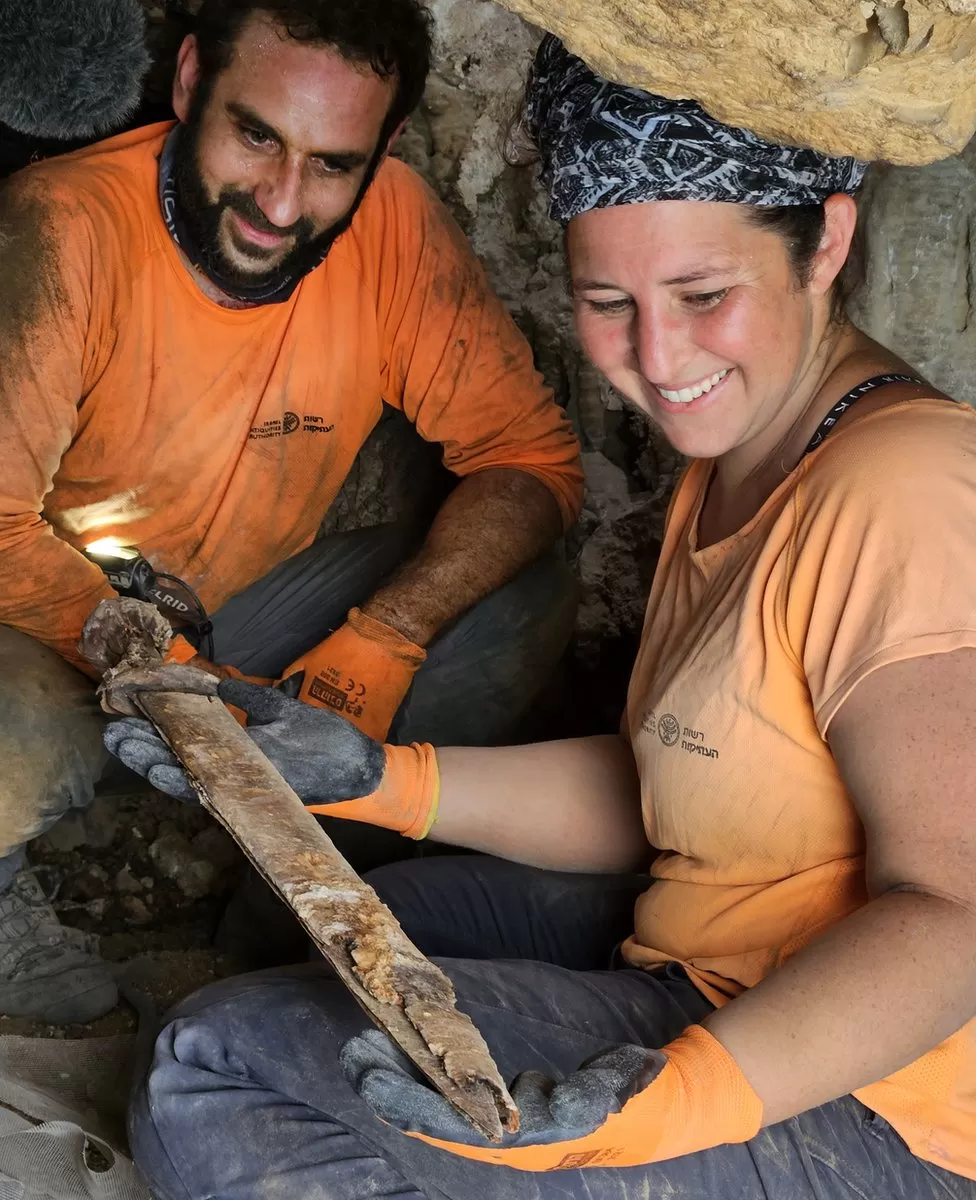Dead Sea reveals four 1,900-year-old Roman swords

A cache of four excellently preserved Roman swords have been discovered by Israeli researchers in a cave overlooking the Dead Sea.
There were still wooden scabbards on three of the 1,900-year-old weapons with iron blades 60-65 cm long (24-26 in).
The stalactites were discovered by a team photographing an ancient inscription on a stalactite in a near-inaccessible crevice.
According to archaeologists, Judean rebels hidden the swords after capturing them as booty from the Roman army.
In a statement, Eli Escusido, director of the Israel Antiquities Authority (IAA), described the discovery as dramatic and exciting.
A dry desert climate around the Dead Sea enabled artifacts to survive that would not survive elsewhere in Israel, according to Mr Escusido.
There are fragments of scrolls, coins from the Jewish Revolt, leather sandals, and even swords in their scabbards, sharp as if they had only been buried yesterday.
In a small cave north of the En Gedi oasis in eastern Israel, a stalactite with an incomplete ink inscription in ancient Hebrew script was discovered fifty years ago.
Ariel University archaeologist Dr Asaf Gayer, Hebrew University geologist Boaz Langford, and IAA photographer Shai Halevi visited the cave recently in order to decode portions of the inscription that are not visible to the naked eye with multispectral photography.
He found a well-preserved Roman pilum, or javelin, in a narrow crevice on the upper level of the cave. A nearby niche also contained parts of the swords’ scabbards, which were made of worked wood.
After reporting the discovery, the researchers returned with another team to survey the cave, discovering the swords in the crevices.
In their wooden scabbards, three of the swords were identified as Roman spatha, while the fourth, shorter weapon was identified as a ring-pommel sword.
Handles were made of wood or metal and were well-crafted.
There were also leather strips, wood pieces, and metal pieces belonging to them found.
